Secular Education is Responsible for Corruption by the Educated Class
Secular Education is Responsible for Corruption by the Educated Class
In our country, the general populace does not need a new introduction to corruption. There is hardly any sector where people can access government services without irregularities and bribes. From the union land office to the passport department, including government hospitals, corruption is rampant in every government institution. These institutions, run on taxpayer money and obliged to provide free services, fail to serve the public without extra payments. In many cases, not paying these extra amounts results in harassment for the service seekers. The corrupt grow rich with black money, and unfortunately, those involved in these corrupt practices are none other than the educated and highly educated class. By holding key positions in the country, they undermine the rights of the common people to services, often trapping them through fraud to seize their wealth, or showing them the way to irregularities for a bribe.
Newspaper reports often reveal that these corrupt government employees live lives far beyond their monthly salaries. An employee earning ten or twenty thousand takas has already built lavish multi-storied buildings. There is no more secrecy in earning illegal money through bribery and irregularities. This corrupt class has even legitimized it under terms like "extra earnings" or "speed money." Government jobs are considered golden deer, requiring millions of takas to secure, and once secured, the unwritten rule in our society is to recover millions more through corruption. This situation in Bangladesh is also criticized internationally. According to the 2023 Corruption Perceptions Index by the Berlin-based Transparency International, Bangladesh ranks tenth among the most corrupt countries in the world. Furthermore, the 2022 report by Transparency International Bangladesh (TIB) identifies the top three most corrupt sectors in the country: law enforcement agencies, the passport department, and the Bangladesh Road Transport Authority (BRTA). According to the Anti-Corruption Commission (ACC), more than 74 decimal land of families have experienced corruption in law enforcement, 70.5% in the passport department, 68.3% in the BRTA, 56.8% in the judicial sector, 48.7% government health services, 46.6% in local government institutions, and 46.3% in land services.
Recent media headlines have highlighted the severe corruption in key positions within the defense, administration, and revenue sectors. Here are some recent examples of corruption:
Incident 1:
An investigation by Manabzamin revealed that former army chief Aziz Ahmed and his family members possess significant illegal assets. These include an 80-katha bungalow in Aminbazar, Dhaka, 200 kathas in his brother Tofayel Ahmed Joseph's name, over 50 bighas in Ashulia in Aziz Ahmed's name, two plots worth approximately 60 million takas in Ramchandrapur, Mohammadpur, 98 decimal land in Shyampur, a single-story house on 5 kathas of land near Shyamoli School, a 10-story building on 5 kathas of land in Mirpur 12, and a house with 21 flats in Baunia. The United States imposed sanctions on General (Retd.) Aziz and his family members on May 21 for their involvement in corruption (Source: Manabzamin, June 5, 2024).
Incident 2:
The ACC found about 114 acres or 345 bighas of land in the names of former Inspector General of Police (IGP) Benazir Ahmed and his family. Most of this land is in his wife Zeeshan Mirza's name. The ACC discovered this information after a court order following their application to seize Benazir's assets. The public prosecutor stated in court that Benazir Ahmed is accused of abusing power and committing irregularities and corruption to acquire hundreds of millions of takas in undeclared assets in his and his family members' names, both at home and abroad (Source: Prothom Alo, May 27, 2024).
Incident 3:
In the most talked-about goat scandal during Eid-ul-Azha 2024, National Board of Revenue (NBR) official Motiur Rahman's corruption came to light. This well-known official and his relatives have 65 bighas of land, eight flats, two resorts and picnic spots, and two industrial establishments. The ACC is investigating Motiur Rahman for the fifth time over allegations of abnormal wealth and corruption (Source: Prothom Alo, June 24, 2024).
Incident 4:
Another NBR official, Kazi Abu Mahmud Faisal, and his family have had their immovable property and bank accounts seized by court order. As the First Secretary (Taxes Legal and Enforcement) in the Income Tax Department, the ACC found 160 million takas in his and his family's accounts, including flats, plots, and savings certificates, all acquired through corruption (Source: BBC, June 27, 2024).
Incident 5:
A Supreme Court lawyer wrote to the ACC requesting an investigation into the assets of former Dhaka Metropolitan Police (DMP) Commissioner Asaduzzaman Mia. According to reports in Prothom Alo, the senior official's wife owns a house and two flats in Dhaka, and his children own flats and houses in Dhaka, Gazipur, and Narayanganj. His family also owns 67 decimal land and an additional 166 decimal of land (Source: Prothom Alo, June 20, 2024).
Incident 6:
In 2021, Prashanta Kumar Halder (PK Halder) embezzled over 3.5 billion takas and fled to India, becoming a notorious figure in the financial sector. A top official of a financial institution and a bank, Halder was also a top grabber and defaulter in the financial sector. He graduated from BUET and completed his MBA from IBA. He also completed the CFA. Several top officials of the Bangladesh Bank supported and assisted him in his activities. During the hearing of this corruption case, the High Court pointed to the Bangladesh Bank, saying, "Many thieves and robbers have been sitting there for years. Since 2002, all the GMs (General Managers), DGMs (Deputy General Managers), and AGMs (Assistant General Managers) have been sitting there eating honey" (Daily Amader Shomoy, February 24, 2021).
These corrupt officials, who have embezzled billions of takas and laundered money abroad, hold high positions in the country's major institutions and are all highly educated. We mentioned here only a few senior government officials whose corruption has been recently revealed through investigations and reports. The published statistics of these illegal assets have already left the general public in disarray. But how much do we know about the unpublished corruption news beyond this? The ACC acknowledges corruption in government offices, mentioning in its research report that from January to October 2023, nearly 374 individuals were charged in over 100 corruption cases, half of whom were government employees. In an interview with BBC, ACC Commissioner Md. Zahurul Haque stated, "There is no denying the corruption in the public service sector. Many officers and employees are becoming owners of illegal assets."
These corrupt government employees are not just limited to corruption; allegations of money laundering abroad have been longstanding against them. In 2020, then-Foreign Minister Abul Kalam Abdul Momen told the media that the majority of those buying houses and cars in Canada with laundered money were government employees rather than politicians.
Now the question arises: Why are the educated class, who are supposed to serve the country honestly and diligently, getting involved in corruption and being labeled as thieves and robbers?
Education's purpose is not to produce thieves and robbers but to create enlightened individuals. The primary goal of education is to instill moral values, ethics, ideals, and humanity in a person alongside institutional education. Our existing education system manages to impart institutional education, with thousands of graduates and postgraduates emerging from educational institutions every year. But is it making them truly humane? Observing job preferences, it is evident that positions offering opportunities for bribery, financial benefits, and power abuse are prioritized, and this trend is growing. Hence, our education system has largely failed to create morally and ethically sound individuals. Moreover, the education system cannot escape blame for making people corrupt. When an entire system, whether educated or uneducated, bows to injustice and accepts it, only proper education can bring change. But all statistics indicate that while the rate of education and the number of educated people are increasing in the country, corruption is not decreasing but rather increasing. So, we must focus on identifying the flaws in our education system.
To identify these flaws, we must return to the roots of the British-introduced education system in our country. This system aimed to create some native clerks for the British colonial government, not patriots. If they had taught patriotism, it would have been suicidal for foreign rulers. Hence, they wanted to make students loyal to the British and enamored with Europe so that they worshipped foreign dogs as lords. As Europe believed in materialistic civilization, the education system they introduced here also molded students into materialists. It did not teach the values of ethics and patriotism. As a result, those educated here emerged with a blind love for the West, immersed in inferiority regarding their country and nation, and lacking any moral character. For them, material wealth and luxury, and high income are paramount. The purpose of their education is no more than riding in cars.
Human desires are infinite. No matter how high the salary, people always want to earn more. As a result, many compromise with various forms of corruption, irregularities, and injustices. Due to a lack of true knowledge and understanding of religion, their faith in the afterlife is also weakened. The thought that they will be accountable to Allah in the afterlife does not prevent them from wrongdoing.
On the other hand, the education systems in Western countries emphasize patriotism and morality. Consequently, the educated class in those nations demonstrates honesty, morality, and responsibility in important roles. The statistics for corruption and irregularities are minimal there. In every aspect, they show the qualities of a conscientious and good citizen, whether it's following traffic laws or in the workplace. Even a drunk person cannot be made to do something that harms the country.
Therefore, if we want to save our country from the shame of repeatedly being labeled a champion of corruption, if we want to develop our educated class into true human beings, and if we want to protect our country and its people from corruption and money laundering, we have no alternative but to overhaul our education system.
Images Related to this Post

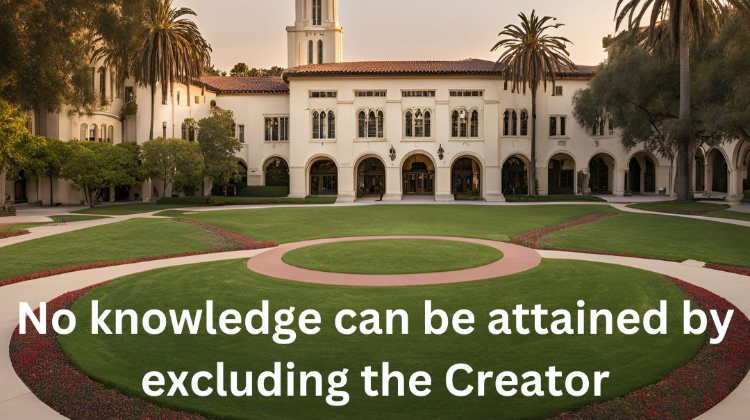
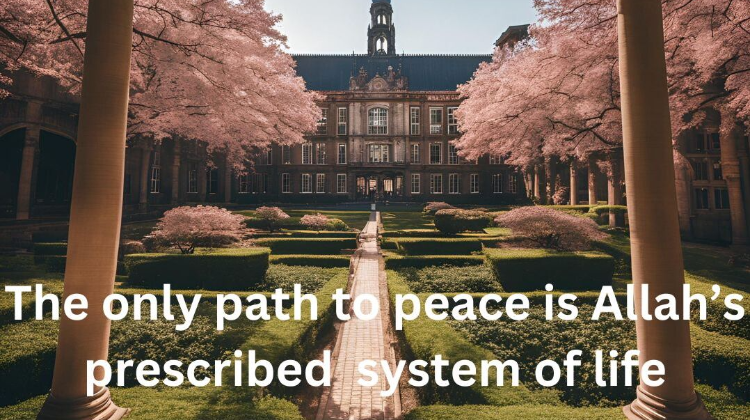
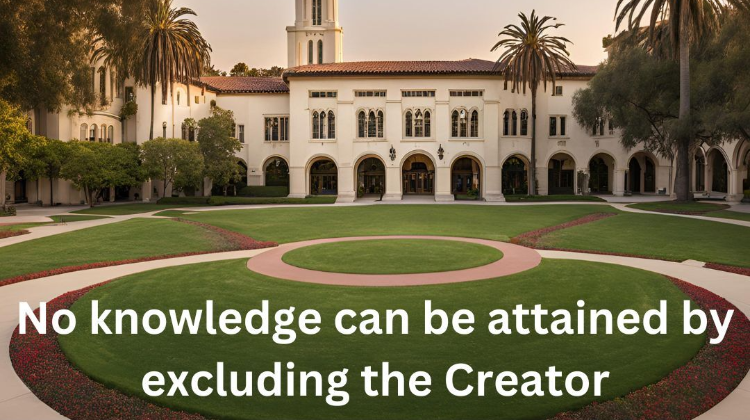




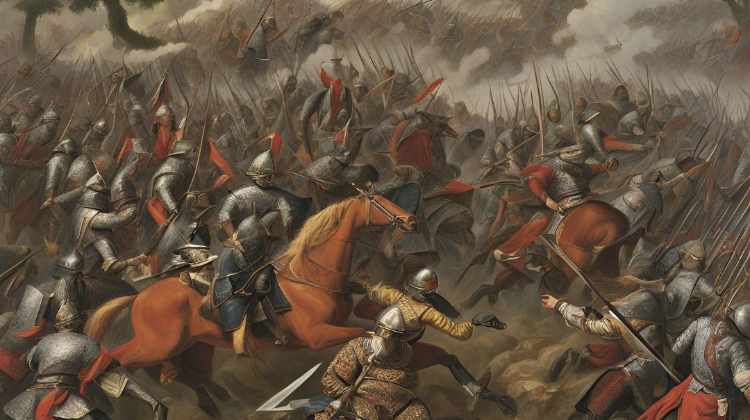
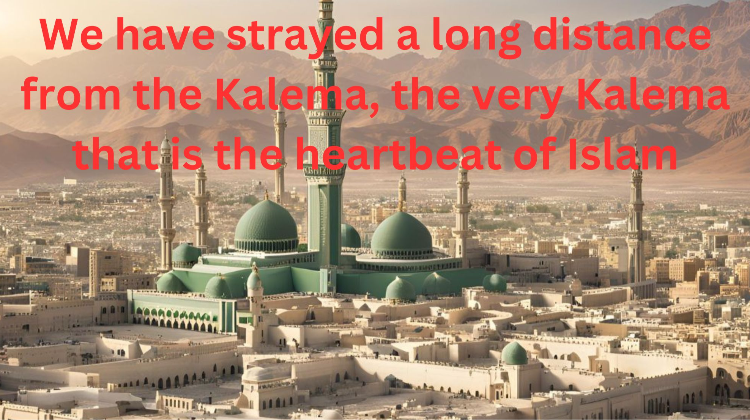


Leave a Comment